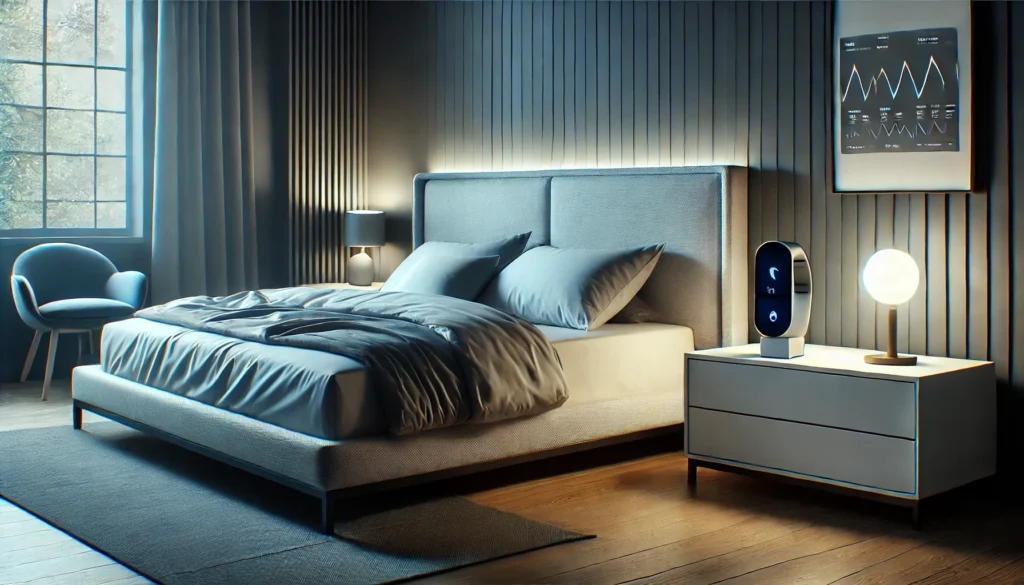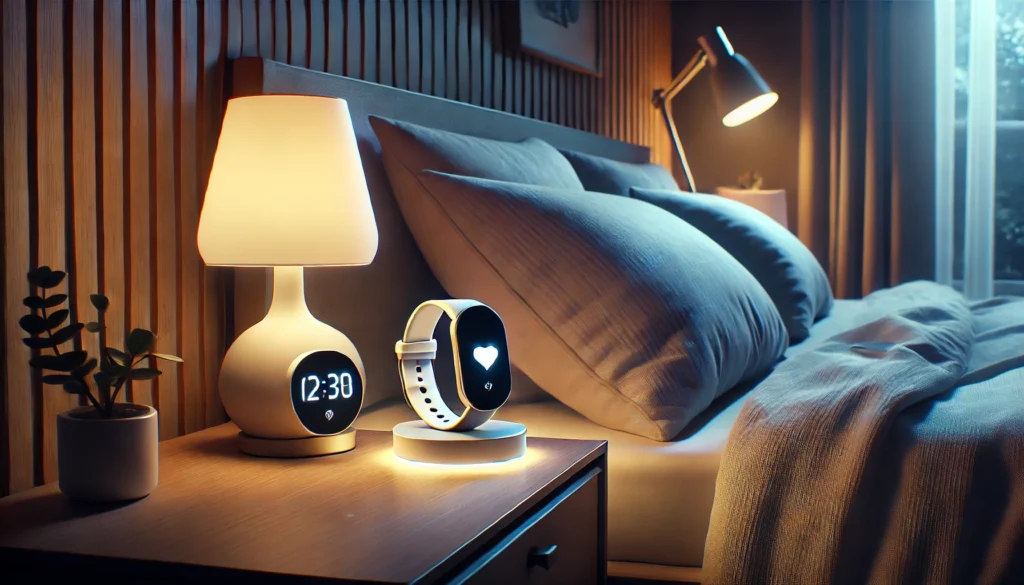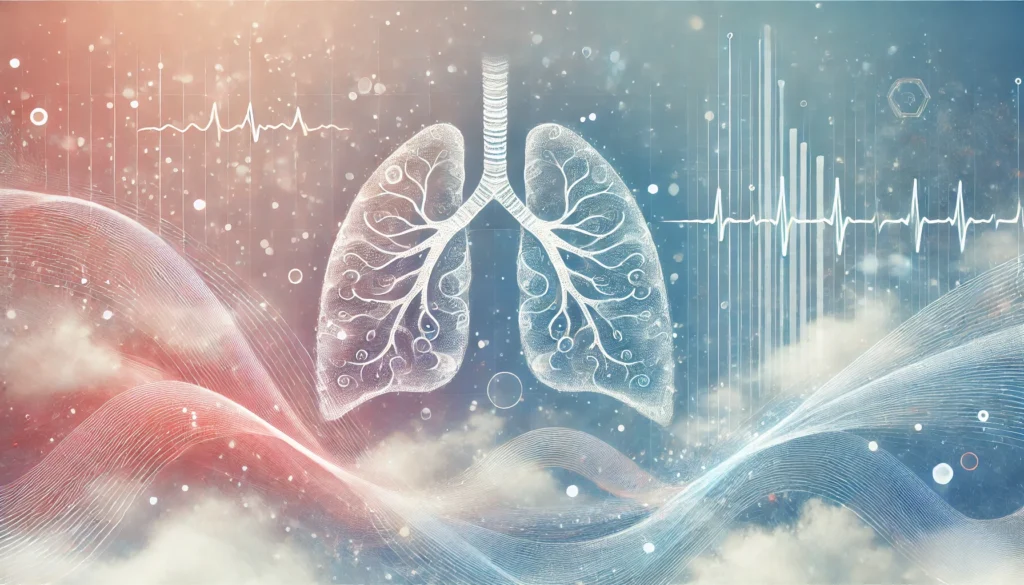Navigating the complexities of sleep apnea can be daunting, especially when seeking ways to manage it effectively without incurring significant costs. Fortunately, technology has paved the way for innovative solutions that are just a tap away on your smartphone. In this article, we’ll explore the top free apps designed to assist in sleep apnea management, offering insights into how these tools can enhance your journey to better sleep health.
You May Also Like: Ultimate Guide to Sleep Tracker Apps
Understanding Sleep Apnea
Before diving into the world of apps, it’s crucial to understand what sleep apnea is. Sleep apnea is a serious sleep disorder characterized by repeated interruptions in breathing during sleep. These pauses can last from a few seconds to a minute and may occur multiple times throughout the night. The most common types are obstructive sleep apnea (OSA), central sleep apnea (CSA), and complex sleep apnea syndrome, a combination of both OSA and CSA.
Types of Sleep Apnea
Obstructive Sleep Apnea (OSA) is the most prevalent form and occurs when the throat muscles intermittently relax and block the airway during sleep. This can lead to fragmented sleep and reduced blood oxygen levels. Central Sleep Apnea (CSA), on the other hand, involves the brain failing to send proper signals to the muscles that control breathing. Complex Sleep Apnea Syndrome, also known as treatment-emergent central sleep apnea, is diagnosed when both OSA and CSA symptoms are present. Understanding these types is essential for effective management and treatment.
Symptoms and Diagnosis
Common symptoms of sleep apnea include loud snoring, episodes of breathing cessation during sleep, abrupt awakenings accompanied by gasping or choking, morning headaches, and excessive daytime sleepiness. Diagnosing sleep apnea typically involves a sleep study, which can be conducted in a sleep center or at home. These studies monitor breathing patterns, oxygen levels, and other vital signs to confirm the presence and severity of the disorder. Early diagnosis is key to preventing complications.
Risks and Complications
Untreated sleep apnea can lead to a range of health issues, including hypertension, heart disease, type 2 diabetes, and liver problems. It can also contribute to mood disorders and cognitive impairments, affecting overall quality of life. Understanding these risks emphasizes the importance of managing sleep apnea effectively, which can significantly improve health outcomes and daily functioning. Individuals should work closely with healthcare providers to mitigate these risks.
The Role of Technology in Sleep Apnea Management
With the evolution of mobile technology, individuals can now access a plethora of resources and tools that were once limited to medical professionals. Apps specifically designed for sleep apnea management offer features such as sleep tracking, educational content, and even therapy reminders. These tools aim to empower users by providing them with insights and strategies to improve their sleep quality.
Sleep Tracking and Data Analysis
One of the primary features of sleep apnea apps is their ability to track sleep patterns and analyze data. These apps use sensors and algorithms to monitor movements, sounds, and breathing patterns, providing users with detailed insights into their sleep quality. Analyzing this data can help identify patterns or disruptions that may be indicative of sleep apnea, allowing users to seek medical advice if necessary. This proactive approach can lead to earlier diagnosis and intervention.
Educational Resources and Support
Many sleep apnea apps include educational resources that offer information on the condition, its symptoms, and management strategies. These resources can empower users by increasing their understanding of sleep apnea and its impact on health. Additionally, some apps feature community support forums where users can connect with others facing similar challenges. This support network can be invaluable in providing encouragement and practical advice for managing the disorder.
Integration with Medical Devices
Advanced sleep apnea apps may integrate with medical devices such as CPAP machines, providing real-time feedback and monitoring. This integration allows users to track the effectiveness of their therapy and make adjustments as needed. For example, some apps provide alerts or reminders to ensure adherence to treatment plans, enhancing compliance and outcomes. This seamless connection between apps and devices represents a significant advancement in personalized healthcare.

Free Sleep Apnea Apps: A Closer Look
Here, we delve into some of the best free apps available for managing sleep apnea. Each app offers unique features that cater to different aspects of the condition, from detection to ongoing management.
1. Sleep Apnea – Snore Recorder
One of the top contenders in the realm of free sleep apnea apps is the Sleep Apnea – Snore Recorder. This app serves as a preliminary diagnostic tool, allowing users to record and analyze their snoring patterns. By providing a detailed overview of snoring intensity and frequency, users can identify potential signs of sleep apnea and decide if further medical consultation is necessary.
Features and Functionality
The Snore Recorder app utilizes advanced sound recognition technology to capture and analyze snoring sounds throughout the night. Users can review their snoring patterns through easy-to-read graphs and reports. The app also offers a snore score, which provides an overall assessment of snoring severity. This information can be critical in recognizing the need for a formal sleep study or medical intervention.
User Experience and Interface
Designed with user convenience in mind, the app features an intuitive interface that simplifies navigation and data interpretation. Users can easily start recording sessions with a single tap and access their snoring history at any time. The app’s design prioritizes user engagement, ensuring that individuals can effortlessly incorporate it into their nightly routines. This seamless user experience enhances the app’s effectiveness as a monitoring tool.
Limitations and Considerations
While the Snore Recorder provides valuable insights into snoring patterns, it is not a substitute for professional medical evaluation. Users should be aware that snoring alone does not confirm sleep apnea, and further testing may be required. Additionally, external factors such as background noise can impact recording accuracy, so users should ensure a quiet environment for optimal results.
2. SleepScore
Renowned for its comprehensive sleep tracking capabilities, SleepScore offers a blend of advanced sonar technology and data analytics to provide users with a detailed sleep analysis. While it doesn’t diagnose sleep apnea directly, the app’s insights into sleep patterns and disturbances can help users identify irregularities that may warrant further investigation.
Technology and Accuracy
SleepScore employs non-invasive sonar technology to monitor sleep stages and movements. This innovative approach provides high accuracy without requiring contact sensors, making it an appealing option for users. The app generates a SleepScore, which reflects overall sleep quality, and offers personalized recommendations based on individual sleep data. This precision and personalization set SleepScore apart in the sleep tracking market.
Insights and Recommendations
Beyond basic sleep tracking, SleepScore provides users with actionable insights and advice to improve sleep quality. The app analyzes factors such as sleep duration, efficiency, and disturbances, offering tailored suggestions to address identified issues. This personalized guidance empowers users to make informed changes to their sleep environment and habits, ultimately enhancing their well-being.
User Community and Support
SleepScore fosters a community of users dedicated to improving their sleep health. Through forums and discussion boards, users can share experiences, tips, and success stories, creating a supportive network. This sense of community can be motivating and reassuring for individuals navigating sleep challenges. Access to expert articles and resources further enriches the user experience.
3. SnoreLab
SnoreLab is an app dedicated to monitoring snoring activity, which is a common symptom of sleep apnea. By recording snoring sounds, SnoreLab offers insights into snoring intensity and patterns, helping users track progress over time. Although it doesn’t replace a medical diagnosis, it serves as an excellent tool for individuals seeking to monitor their condition more closely.
Monitoring and Analysis
SnoreLab records snoring sounds during sleep, providing users with detailed reports on snoring duration, intensity, and frequency. The app’s algorithms distinguish between different types of snoring, offering insights into potential underlying causes. Users can compare nightly results and track changes over time, gaining a deeper understanding of their snoring patterns.
Customization and Personalization
The app allows users to tailor their experience by setting personalized goals and alerts. Users can experiment with lifestyle changes or anti-snoring remedies and track their effectiveness using SnoreLab’s analysis. This customization encourages proactive management of snoring and potential sleep apnea symptoms, fostering a sense of control and empowerment.
Data Sharing and Collaboration
For individuals undergoing medical evaluation, SnoreLab offers an option to export snoring data and reports. This feature facilitates collaboration with healthcare providers, allowing them to review and interpret the data in the context of a comprehensive sleep assessment. Sharing this information can enhance the accuracy of diagnoses and treatment plans.
4. SleepMapper
SleepMapper is specifically designed for individuals using CPAP (Continuous Positive Airway Pressure) therapy. This app connects to CPAP devices to provide users with detailed feedback on their therapy sessions. It offers personalized coaching tips and therapy goals, making it an invaluable tool for those committed to optimizing their sleep apnea treatment.
Integration with CPAP Devices
SleepMapper seamlessly integrates with CPAP machines, offering users real-time data on their therapy usage and effectiveness. The app tracks metrics such as mask fit, pressure levels, and usage hours, providing comprehensive feedback. This integration ensures that users can monitor their therapy progress and make necessary adjustments for optimal results.
Coaching and Motivation
To enhance adherence to CPAP therapy, SleepMapper includes personalized coaching features. Users receive tailored tips and encouragement to address common challenges, such as mask discomfort or dry mouth. This motivational support can significantly improve compliance rates and treatment outcomes, making it a valuable resource for individuals committed to managing their sleep apnea.
Goal Setting and Progress Tracking
SleepMapper encourages users to set therapy goals and track their progress over time. By visualizing improvements in sleep quality and therapy adherence, users can stay motivated and engaged in their treatment plans. This goal-oriented approach fosters a sense of achievement and accountability, ultimately promoting long-term success in sleep apnea management.
5. Apnea Trainer
Unlike the other apps mentioned, Apnea Trainer focuses on exercises designed to strengthen the respiratory muscles. By doing so, it aims to reduce symptoms associated with sleep apnea. The app includes guided breathing exercises and training sessions, making it a practical addition to any sleep apnea management plan.
Breathing Exercises and Techniques
Apnea Trainer offers a variety of breathing exercises aimed at enhancing respiratory strength and endurance. These exercises are designed to improve airway stability and reduce the frequency of apnea events. Users follow guided sessions that progressively increase in difficulty, fostering gradual improvement and adaptation.
Benefits and Effectiveness
Regular practice of the exercises provided by Apnea Trainer can lead to noticeable improvements in sleep quality and reduction in sleep apnea symptoms. Strengthening the respiratory muscles can enhance overall lung function and reduce reliance on other interventions. While not a replacement for medical treatment, these exercises offer a complementary approach to managing sleep apnea.
User Experience and Accessibility
The app’s user-friendly interface and clear instructions make it accessible to individuals of all fitness levels. Users can select exercises based on their preferences and availability, incorporating them into daily routines. This flexibility ensures that users can consistently engage with the exercises, maximizing their potential benefits.

How These Apps Enhance Sleep Apnea Management
The aforementioned apps provide users with tools to become active participants in their health management. Here’s how they make a difference:
Empowerment Through Information
By offering insights into sleep patterns and snoring, these apps enable users to understand their condition better and make informed decisions about their health. Access to detailed data and analysis empowers individuals to recognize potential issues early and seek appropriate medical advice. This proactive approach can lead to timely intervention and improved health outcomes.
Convenience and Accessibility
With apps readily available on smartphones, managing sleep apnea becomes more accessible, allowing users to track their condition and therapy on-the-go. This convenience eliminates barriers to monitoring and encourages consistent engagement with management strategies. Whether at home or traveling, users can maintain control over their sleep health.
Engagement in Treatment
Some apps, like SleepMapper, offer direct integration with CPAP devices, providing feedback and coaching that encourage adherence to therapy plans. This engagement enhances treatment effectiveness and helps users overcome common challenges. By fostering a collaborative approach between technology and healthcare, these apps support long-term success in managing sleep apnea.
Future Implications of Sleep Apnea Apps
The future of sleep apnea management looks promising with the continuous advancement of technology. As apps become more sophisticated, we can expect enhanced features such as AI-driven diagnostics and integration with wearable devices for real-time monitoring. Such innovations could revolutionize how sleep apnea is managed, offering even more personalized and effective solutions for users.
AI and Machine Learning
Future sleep apnea apps may incorporate artificial intelligence and machine learning algorithms to enhance diagnostic capabilities. These technologies can analyze vast amounts of data to identify patterns and predict potential sleep apnea events. This advancement could lead to more accurate and personalized assessments, reducing reliance on traditional diagnostic methods.
Wearable Technology Integration
The integration of sleep apnea apps with wearable devices, such as smartwatches and fitness trackers, could provide real-time monitoring and feedback. This continuous data collection enables dynamic adjustments to management plans based on daily variations in sleep patterns and behavior. Wearable technology can also facilitate remote monitoring by healthcare providers, improving the continuity of care.
Personalized Health Solutions
As technology evolves, sleep apnea apps may offer increasingly personalized solutions tailored to individual needs and preferences. Customizable features, adaptive algorithms, and user-specific recommendations can enhance user engagement and satisfaction. This personalization fosters a sense of ownership and motivation, leading to better adherence and outcomes in sleep apnea management.

Conclusion
In a world where technology increasingly intersects with healthcare, sleep apnea apps stand out as powerful tools for individuals seeking to manage their condition effectively. While they are not substitutes for professional medical advice, these apps provide valuable insights and support, making them worthwhile additions to any sleep apnea management strategy.
By leveraging these free resources, individuals can take proactive steps towards improving their sleep quality, ultimately enhancing their overall well-being. Whether you’re a health and wellness coach, a science journalist, or a biohacker, these apps offer a gateway to better understanding and managing sleep apnea, paving the way for a healthier, more restful future.
Through continued innovation and user engagement, sleep apnea apps hold the potential to transform the landscape of sleep health management. Embracing these tools empowers individuals to take control of their sleep apnea journey, fostering a proactive approach to achieving restful and rejuvenating sleep.
Further Reading:
5 Sleep Apnea Apps That May Alert You To Symptoms
The Best Sleep Apps to Help You Get Some Shut-Eye, Tried and Tested
New Android application helps identify signs of sleep apnea at home
Important Note: The information contained in this article is for general informational purposes only, and should not be construed as health or medical advice, nor is it intended to diagnose, prevent, treat, or cure any disease or health condition. Before embarking on any diet, fitness regimen, or program of nutritional supplementation, it is advisable to consult your healthcare professional in order to determine its safety and probable efficacy in terms of your individual state of health.
Regarding Nutritional Supplements Or Other Non-Prescription Health Products: If any nutritional supplements or other non-prescription health products are mentioned in the foregoing article, any claims or statements made about them have not been evaluated by the U.S. Food and Drug Administration, and such nutritional supplements or other health products are not intended to diagnose, treat, cure, or prevent any disease.


